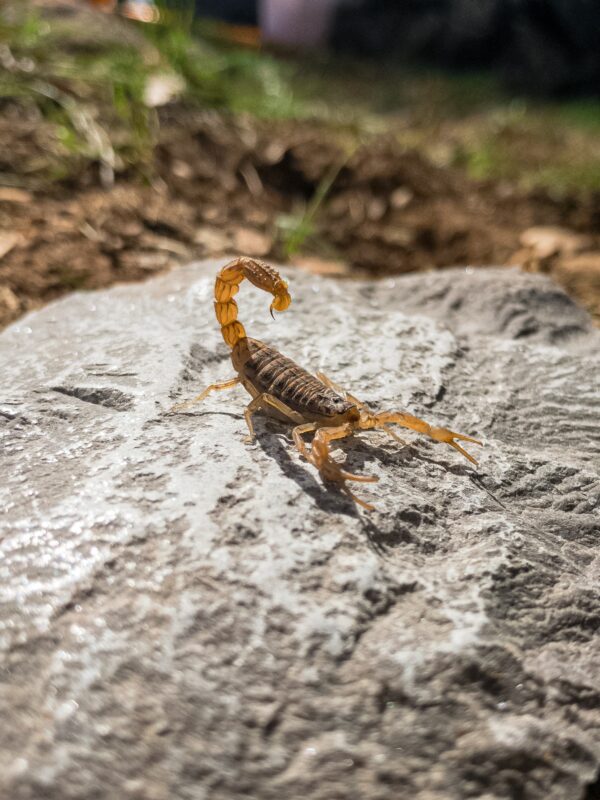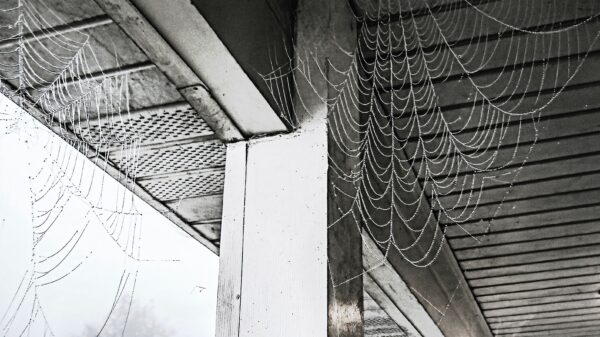No matter whether a region is rocky and arid, humid and sandy, or lush and mossy, critters abound. And as long as they leave well enough alone (i.e. hearth and home and shed, etc.) peace prevails. It is when creepy, crawly or slithery, slimy wildlife gets too close for comfort to human dwellings that territorial problems ensue.
Living harmoniously in a relatively pest-free environment can be achieved with modern-day, hard-core chemicals and specialized monthly services. Yet, there are ways – both commercially and through DIY methods – to naturally keep creatures at bay.
Northwest, a 70-year-old Marietta, Ga.-based green pest control company serving parts of the Southeast, suggests plenty of home remedies and practical strategies for repelling snakes, such as:
- Eliminate hiding places, since snakes prefer dark, damp places and are known to live and hide in cracks, crevices, holes, etc. Check wood piles, under overturned flower pots, inside playground equipment, and more.
- Clean up and/or alter landscaping; for example, keep the undergrowth of wooded areas trimmed and raked as well as lush flower beds weeded.
- Spread natural materials, such as holly leaves, pine cones, egg shells, and gravel, around the perimeter of a home so snakes have difficulty slithering over it.
- Adopt guinea hens, turkeys, or cats, which instinctively keep snakes away.
- Utilize natural ingredients, such as a spray of clove and cinnamon oil or a mix of chopped garlic and onions with rock salt to treat perimeter of a dwelling and other buildings.
- Snakes also abhor the smell of ammonia or vinegar, both of which are inexpensive solutions found in grocery and discount stores.

Snake-stopper-type products, available at hardware and livestock stores, often contain natural sulfur and fuller’s earth ingredients, along with clove and cinnamon. Yet, moth balls and snake-away products containing naphthalene, the ingredient in moth balls, can be toxic and fatal to children or pets if they are ingested, warned Northwest.
Some of the same snake-repellant tactics can be applied in warm, dry climates where scorpions can be found, suggested LawnStarter, based in Austin, Texas, which informed: “Those critters like to sneak in through all available openings. The best way to keep scorpions and other pests out of your home is to seal all cracks and crevices around doors and windows.”
LawnStarter also noted that a common tactic in states like Texas and Florida is to spread cedar mulch.
“I personally plant garlic, basil, lavender, mint and chrysanthemums in the flower beds next to my house,” said Brenda Ryan, LawnStarter’s content manager. “While these plants give off a pleasant aroma, most pests can’t stand the smell. Marigolds and citronella grass are great at replying mosquitoes. Catnip also works wonders, but you’ll have all the neighborhood cats camping out,” she quipped.
Repelling scorpions is proactive, while spraying standard insecticides on surfaces can be counterproductive due to a scorpion’s biology, according to Mike Boyle, scorpion pest control expert at Burns Pest Elimination, which has locations in Phoenix and Tucson, Ariz., and Las Vegas, Nev. “They walk on their tiptoes,” he said, “so even if they do come in contact with a product intended to eliminate them, they take in a very small amount. They barely touch the surface.”

Boyle also explained that a myth about scorpions is that they have developed a pesticide resistance. “That is 100% untrue.” He encourages people to think of scorpions as “coyotes or wolves. If they are at your house, it’s often because there is a food source, like crickets and earwigs, for example. So address the food source and there might not be a scorpion problem.”
Also, Boyle said that because scorpions prefer to hang out vertically versus horizontally, he advised: “Look around the yard. Block walls are a favorite hangout place.” He recommends anyone squeamish about killing scorpions to contact a pest control company that understands the biology of scorpions so they can be eliminated effectively. And, he added that various insecticides include naturally occurring components.
Although lovers of the classic children’s book, Charlotte’s Web, may cringle at the thought, clearing spiders’ webs on porches, under decks, around eaves, etc., are best practices for deterring spiders as webs are homes for spider egg sacks. And a 2018 National Center for Biotechnology Information study titled, “Natural Compounds as Spider Repellents: Fact or Myth?” concluded mint oils and chestnut fruits discourage spider visitations, while lemon oil – a substance thought to be effective against spiders – does not.
As soon as the weather warms, fleas and ticks also surface and can be brought into homes via pets and people. Tommy Yeager, service manager at A&A Lawn Care & Landscaping provided easy solutions to try – before calling professionals:
- cedar, which has an odor that is pleasant to humans but abhorrent to fleas; “Spread cedar chips around the perimeter of your yard and in areas where you have detected fleas for the best results,” he noted.
- chrysanthemums, eucalyptus, lavender, marigolds, mint, rosemary, and sage plants, which are insect-repelling plants
- Diatomaceous Earth, because of its abrasive properties; Yeager explained, “The fine powder absorbs lipids from the waxy outer layer of the exoskeletons of many species of insects; this layer acts as a barrier that resists the loss of water vapor from the insect’s body. Damaging the layer increases the evaporation of water from their bodies, so that they dehydrate, fatally.” This natural insect repellent can be applied to dry areas indoors or out.
When natural DIY strategies fail to work and/or if the flea and tick problem appears too overwhelming, Yeager said professional lawn or pest services provide natural options. “We are mindful of everything we apply,” he explained. “Everything we do is thought through before we ever apply a single product. And of course everyone here is licensed to understand the importance of the environment and what we are trying to achieve.”

And Central Alabama-based DC Scientific Pest Control informed that roaches detest fabric softener, which can be mixed with water and sprayed. When they eat coffee grounds spread around a home, the caffeine will kill them. And, simply keeping interior and exteriors free of food particles means roaches have no reason to become a nuisance.
The good news is that many DIY steps and inexpensive formulas deter a wide variety of creeping creatures, other than the ones included in this article. For example, the brown marmorated stink bug, accidentally introduced in the United States from Asia supposedly in the 1990s, has become not only a creepy annoyance, but a garden destroyer as well. While not poisonous, their odor can clear a room and a female can lay 400 eggs in a lifetime, so the crusty bugs will quickly proliferate. However, droplets of essential oils as peppermint or spearmint, a sprinkling diatomaceous earth, or pieces of garlic around any possible openings – window casings, for example – help to send a message: Stay away!
"tactic" - Google News
June 28, 2021 at 01:07PM
https://ift.tt/3jktAQZ
Tactics to deter unwanted pests from your home - The Epoch Times
"tactic" - Google News
https://ift.tt/2NLbO9d
Shoes Man Tutorial
Pos News Update
Meme Update
Korean Entertainment News
Japan News Update
Bagikan Berita Ini














0 Response to "Tactics to deter unwanted pests from your home - The Epoch Times"
Post a Comment